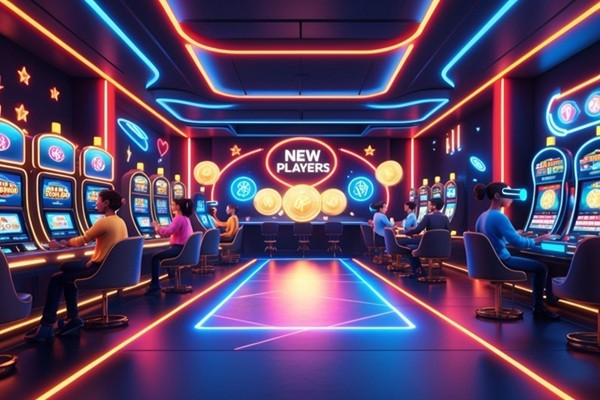AI and Gaming Industry Trends

Artificial Intelligence is no longer just a buzzword in gaming — it’s the driving force behind innovation, personalization, and next-level immersion. From smarter NPCs to adaptive storytelling and procedural world generation, AI is reshaping how games are made and played. In this AI and Gaming Industry Trends guide, we explore what’s next for 2026, highlighting the breakthroughs transforming game development and player experiences. For more updates on gaming tech, esports, and hardware, visit https://www.prosoundnewseurope.com.
The line between human creativity and machine intelligence is blurring fast. Developers are using AI to push boundaries, while players are benefiting from more dynamic, living worlds that respond uniquely to their actions.
Smarter NPCs and Realistic Behaviors
Gone are the days of predictable enemies and static dialogue trees. In 2026, AI-controlled NPCs are more lifelike than ever, capable of learning, adapting, and reacting to player choices in real time.
Key improvements in NPC intelligence:
- Adaptive decision-making: Enemies and allies now analyze environments, resources, and player strategies before responding.
- Procedural dialogue systems: NPCs use natural language processing to create more organic conversations.
- Emotional AI: Characters express mood changes and behavioral shifts depending on in-game events.
- Team coordination: In squad-based games, AI teammates adjust tactics dynamically based on your playstyle.
Games like The Elder Scrolls VI, Starfield: Nexus Expansion, and Mass Effect: Resurrection are leading examples of how AI can make every encounter feel fresh and unpredictable.
AI in Game Development and Design
Behind the scenes, AI is revolutionizing how games are built. Developers are using machine learning to streamline workflows, test features, and even generate assets on the fly.
Major AI-driven innovations in game development:
- Procedural content generation: AI creates massive, detailed worlds in seconds — from landscapes to cityscapes.
- Automated QA testing: Machine learning detects bugs and optimization issues faster than manual testers.
- AI-assisted coding and animation: Developers now use tools like GitHub Copilot and DeepMotion to speed up production.
- Voice and character modeling: AI replicates realistic voices and facial animations, reducing production costs.
These advancements shorten development cycles, allowing smaller teams to produce larger, more complex games than ever before.
Personalized Player Experiences
One of the most exciting shifts in 2026 is the rise of AI-powered personalization. Games now adapt to your behavior, learning how you play and tailoring content to your preferences.
Examples of personalization in action:
- Dynamic difficulty: AI adjusts challenges based on your skill level, keeping games fun yet engaging.
- Narrative adaptation: Storylines evolve depending on moral choices and playstyle patterns.
- Predictive matchmaking: Online games use machine learning to match players with similar skill and temperament.
- In-game coaching: AI assistants analyze performance, offering real-time tips and training feedback.
This shift from static experiences to adaptive gameplay ensures that no two sessions ever feel exactly the same.
AI and Virtual Worlds
Artificial Intelligence is also transforming the way open worlds function. In 2026, environments feel alive — ecosystems evolve, NPCs maintain routines, and events occur naturally without scripted triggers.
New frontiers for AI-driven world-building:
- Living ecosystems: Weather, wildlife, and resource systems respond to player impact and time progression.
- Procedural story generation: AI crafts side quests and character arcs that feel handcrafted.
- Immersive VR integration: AI improves motion tracking, dialogue recognition, and object interaction in virtual environments.
- AI moderators: Online games use advanced moderation bots that detect toxicity and encourage positive community behavior.
Virtual worlds are becoming self-sustaining, creating endless replayability and realism.
The Rise of AI-Generated Content
AI is empowering not just developers, but players themselves. User-generated content (UGC) powered by AI tools is reshaping community creativity.
In 2026, players can:
- Generate custom characters, levels, and stories using text prompts.
- Train AI companions or bots to play alongside them.
- Use AI-assisted design platforms to create game mods, skins, and animations.
- Monetize their creations directly through integrated marketplaces.
This democratization of creativity is blurring the line between developer and player, turning gaming into a truly collaborative art form.
Challenges and Ethical Considerations
With great innovation comes new challenges. As AI grows more powerful, developers face questions about ownership, authenticity, and fairness.
- AI bias: Ensuring algorithms don’t create unbalanced or stereotyped behaviors.
- Data privacy: Protecting player information used in personalization systems.
- Creative integrity: Maintaining a balance between human artistry and machine-generated content.
- Job shifts: Automation is changing traditional developer roles, requiring new skills and adaptation.
Responsible development and transparency will be key as AI continues to shape the future of gaming.
What’s Next for 2026 and Beyond
AI’s influence on gaming is just beginning. The coming years will see even greater convergence between human imagination and machine learning:
- Fully AI-directed game worlds that evolve independently of player input.
- Voice-driven design tools where creators build games through conversation.
- Emotional feedback systems detecting player reactions through biometrics.
- Collaborative AI co-creators that help design, test, and even write games in real time.
By 2026, AI isn’t replacing developers — it’s empowering them to dream bigger and build faster.
Final Thoughts
The AI and Gaming Industry Trends for 2026 show an exciting, transformative era. Artificial Intelligence is redefining how games are designed, played, and experienced, making them smarter, more personal, and more immersive than ever before. As the technology continues to evolve, one thing is certain: the future of gaming will be shaped not just by human imagination, but by the powerful synergy between creators and machines.




